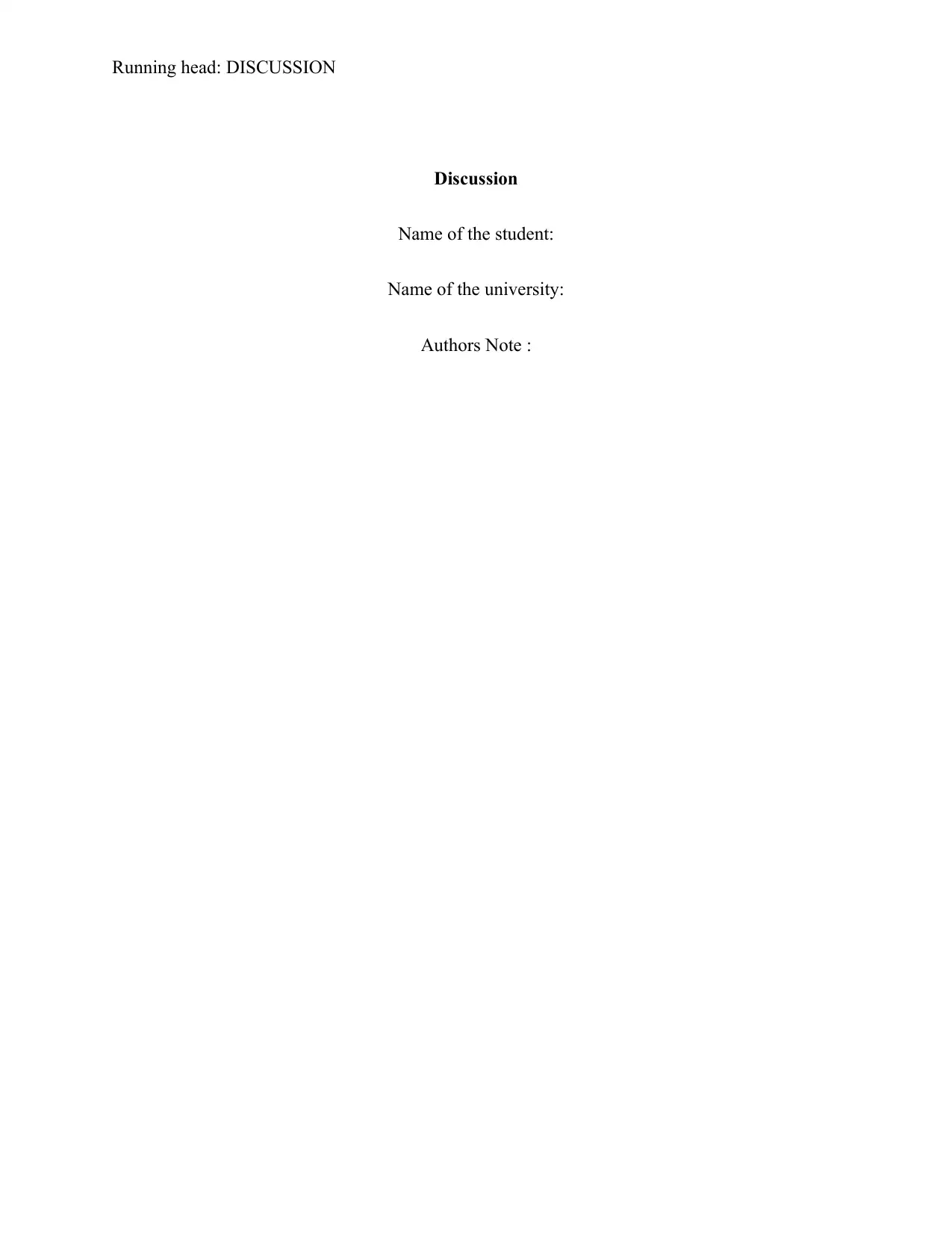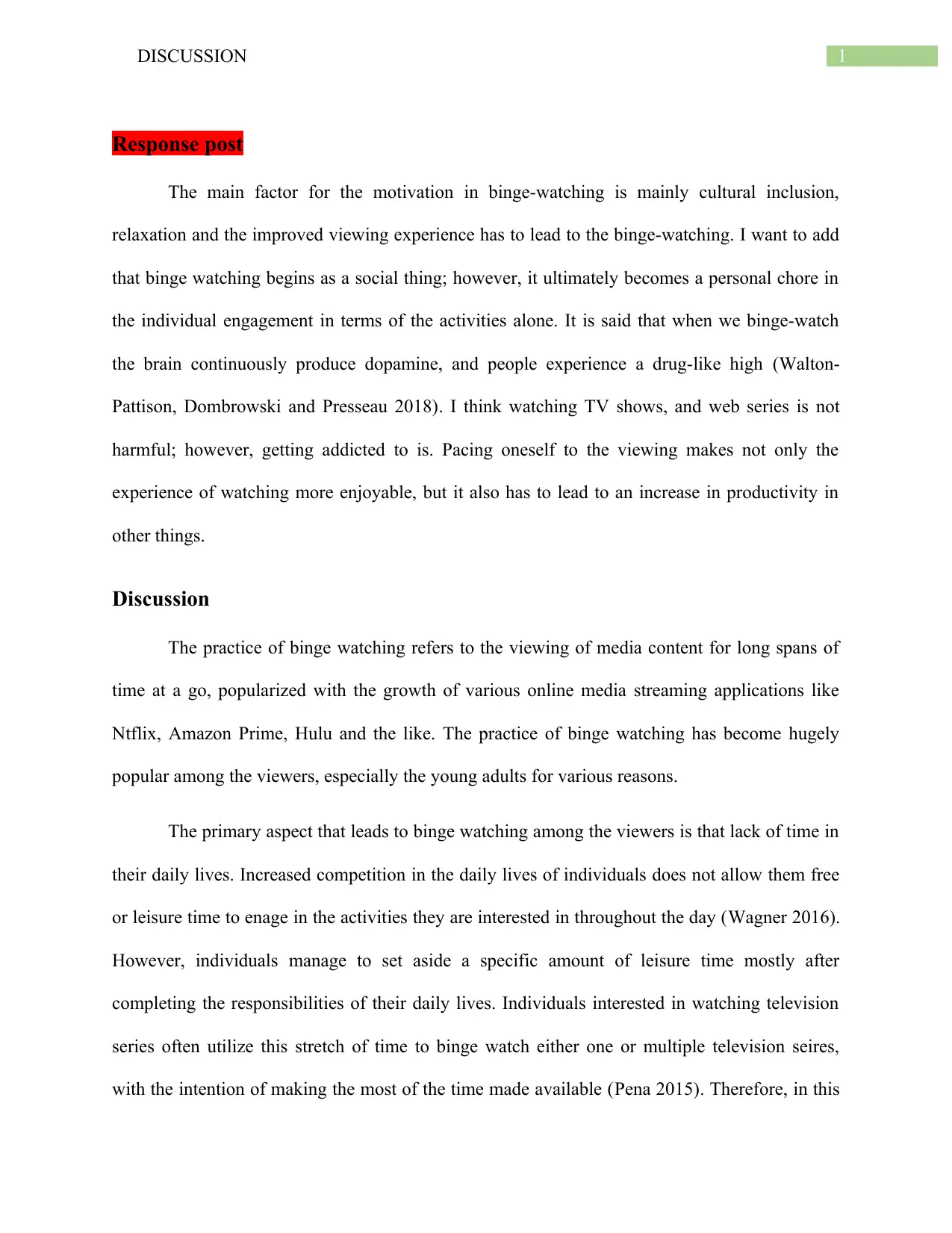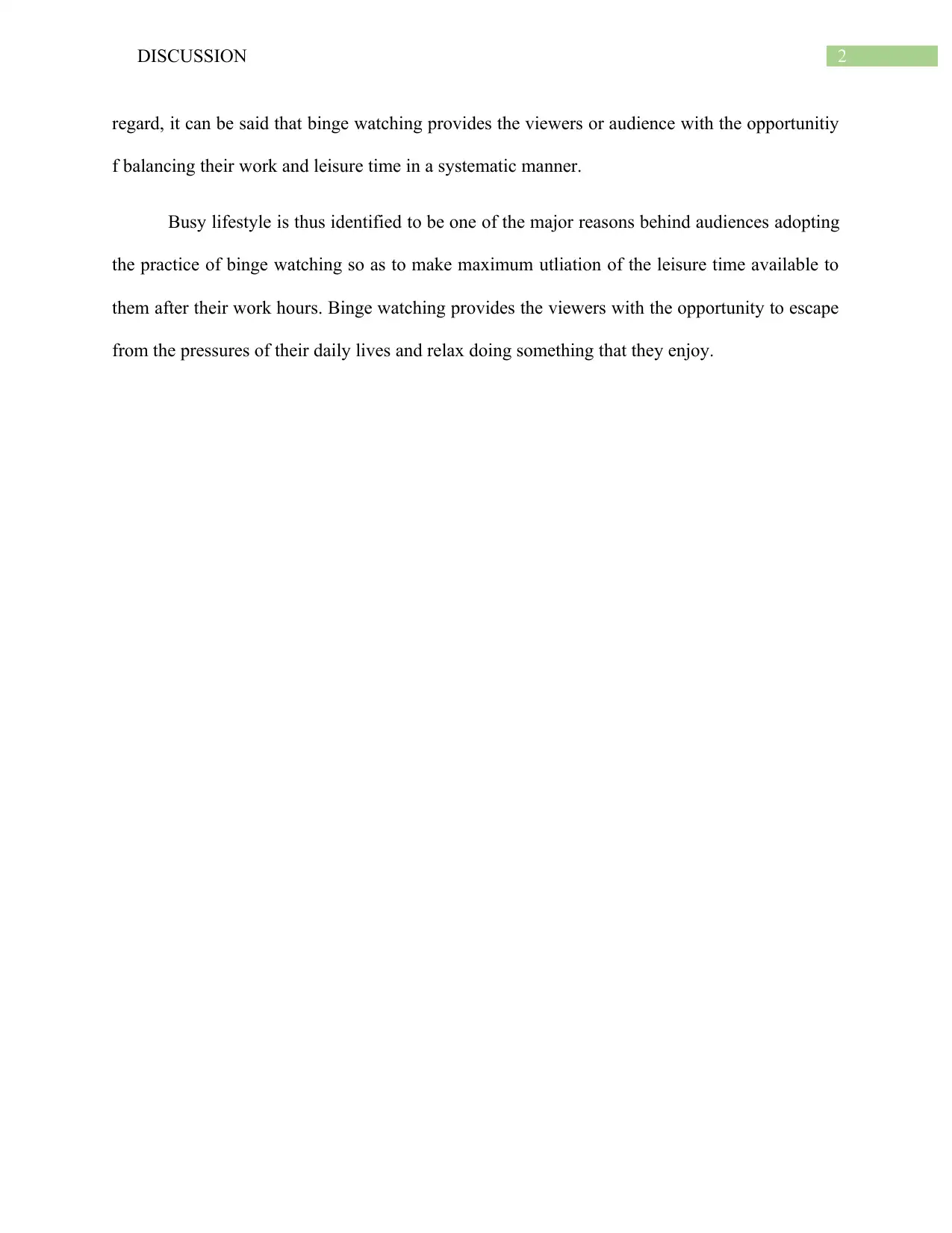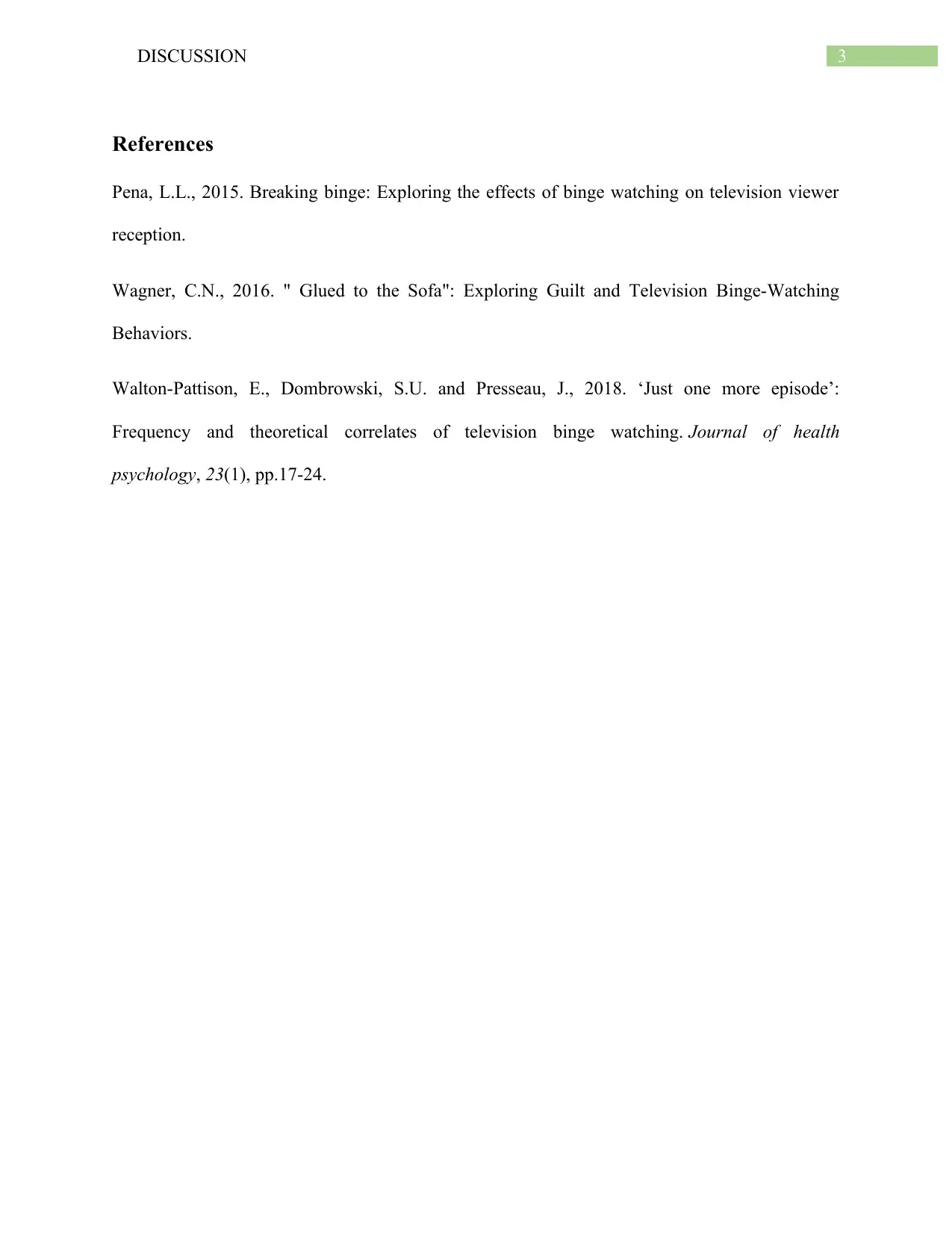University Discussion: Exploring Causes and Effects of Binge-Watching
VerifiedAdded on 2022/09/22
|4
|517
|21
Discussion Board Post
AI Summary
This discussion post explores the causes and motivations behind binge-watching behavior, examining factors such as cultural inclusion, relaxation, improved viewing experiences, and the influence of technology. The author discusses the dopamine release associated with binge-watching and differentiates between enjoying TV shows and becoming addicted. The post also identifies the lack of leisure time in modern life and the desire to escape daily pressures as contributing factors. Furthermore, the assignment includes a response to a classmate's post, which emphasizes the role of technology and streaming services in facilitating binge-watching habits. The student emphasizes the ease of access and the addictive nature of streaming platforms like Netflix, while also acknowledging the social and personal aspects of this behavior and the negative health impacts. The assignment fulfills the requirements of a cause-and-effect discussion, requiring a minimum word count and a response to a peer's post.
1 out of 4






![[object Object]](/_next/static/media/star-bottom.7253800d.svg)